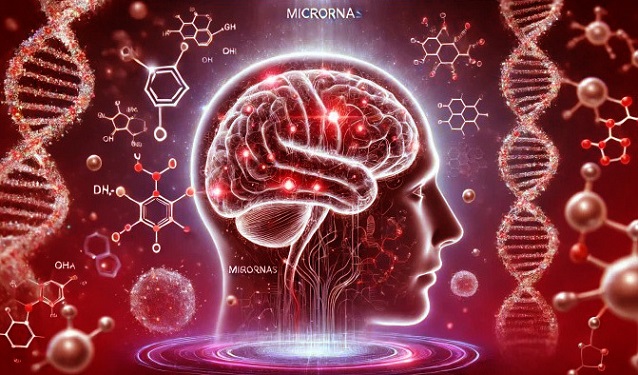Brazil Scientists Discover That Downregulating a Specific MicroRNA Offers Hope for Brain Cancer
Nikhil Prasad Fact checked by:Thailand Medical News Team Sep 15, 2025 5 months, 1 week, 1 day, 22 hours, 44 minutes ago
Medical News: A closer look at glioblastoma
Glioblastoma is the most common and most aggressive form of brain cancer, often leaving patients with less than a year to live after diagnosis. Despite advances in surgery, chemotherapy, and radiation, the disease continues to return and spread. Scientists from the Federal University of Rio Grande do Sul in Brazil have been investigating new ways to weaken the cancer’s ability to survive and grow. In their latest study, they focused on two microscopic regulators inside cells, known as microRNAs, and discovered that blocking one of them—miR-27a-3p—could disrupt the tumor’s survival systems. This
Medical News report explores how the findings may pave the way for better treatment strategies.
 Brazil Scientists Discover That Downregulating a Specific MicroRNA Offers Hope for Brain Cancer
What microRNAs do
Brazil Scientists Discover That Downregulating a Specific MicroRNA Offers Hope for Brain Cancer
What microRNAs do
MicroRNAs are very small molecules that control how genes behave. They can act like switches, turning certain cellular processes on or off. In healthy cells, they maintain balance, but in cancer, they often go rogue. In glioblastoma, miR-27a-3p and miR-155-5p are found at high levels, driving the tumor to grow faster, avoid cell death, and resist drugs. The research team wanted to see what would happen if these molecules were shut down.
Major discoveries from the study
The experiments were carried out using glioblastoma cells. When scientists blocked miR-27a-3p, the cancer cells began to break down in several important ways:
-The cells underwent programmed cell death, also known as apoptosis.
-They absorbed less glucose, starving them of energy.
-Their mitochondria, the power producers of the cell, lost their function, leaving them weak and unable to thrive.
The study also revealed that miR-27a-3p strongly controls a pathway called TGF-β signaling. This pathway normally helps glioblastoma cells suppress the immune system and adapt to low-oxygen conditions. By reducing miR-27a-3p, this cancer-protecting pathway was disrupted. When researchers combined the blocking of miR-27a-3p with a drug that specifically inhibits the TGF-β receptor, the cancer cells were destroyed even more effectively.
Why this research is important
Glioblastoma is one of the hardest cancers to treat because of its ability to adapt and resist therapies. By targeting miR-27a-3p, scientists may have found a way to cut off the cancer’s main energy supply and weaken its survival strategies. This suggests that in the future, therapies could be developed that use microRNA blockers alongside existing treatments to improve patient outcomes.
The research was conducted by teams from the Graduate Program in Biological Sciences: Biochemistry, the Laboratory of Cancer Immunobiochemistry, and the Department of Biochemistry at the Federal University of Rio Grande do Sul, Brazil.
Moving forward
ng>
These findings, though still based on laboratory models, highlight how even tiny molecules can have enormous influence on cancer growth. If further studies confirm these results in animal and human trials, therapies aimed at shutting down miR-27a-3p could transform the outlook for glioblastoma patients. Such an approach may finally provide a way to slow tumor progression, make existing treatments more effective, and give patients more time.
The study findings were published in the peer reviewed International Journal of Molecular Sciences.
https://www.mdpi.com/1422-0067/26/17/8729
For the latest on brain cancers, keep on logging to Thailand Medical News.
Read Also:
https://www.thailandmedical.news/news/new-potential-glioblastoma-therapy-shows-powerful-results-using-dual-
https://www.thailandmedical.news/news/methylstat-shows-promise-in-slowing-deadly-brain-cancer
https://www.thailandmedical.news/news/retinoic-acid-may-hold-key-to-weakening-glioblastoma-resistance
